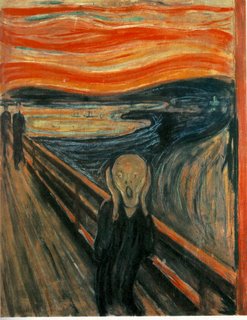
"Only the dead have seen the end of war" – Plato
Who am I to speak of war? I have never been enlisted in any branch of the service and have never been involved in armed conflict apart from having an arrow shot at me once when I was younger. I have been blessed – I’ve reaped the rewards of living in a free society. I am a student of history (to a certain extent) and an active participant in the democratic process (I vote). I try to be conscious of what is happening around me. As of the writing of this particular article, I still live in a Democracy; one with free speech. Now I am aware that “Freedom is never free,” and that the life that I enjoy in these United States was purchased with the blood of many whom successfully fought for life and liberty. My father fought in the Korean War, my father in law fought in Viet Nam. I have friends who fought in the Gulf War and have others who were/are serving in Iraq. I have nothing but respect for them all. Battles hard won and lost; each preserving our existence – our ‘way of life’. You don’t have to go too far to run into honest to God heroes; chances are you may rub shoulders with quite a few yourself. Thank them. They do and have done a job that I wouldn’t want to do. I tell you this so you know where I stand when it comes to the people on the ground in this latest conflict; Iraq.
General William Tecumseh Sherman is credited with the oft quoted, “War is hell.” He knew what he was talking about. In an open letter to Mayor Calhoun of Atlanta and others dated just before his “March to the Sea” through the city of Atlanta (Sept. 12, 1864), he wrote, “You cannot qualify war in harsher terms than I will. War is cruelty, and you cannot refine it; and those who brought war into our country deserve all the curses and maledictions a people can pour out. I know I had no hand in making this war, and I know I will make more sacrifices to-day than any of you to secure peace." He wrote this letter in response to the city asking to be spared during wartime. Sherman knew what war was. He did not have to answer to any politically correct coercion from a populous with its heart in the right place sitting as far away from the frontline as possible. He knew that war was not pretty or glorious or that it could be sanitized and held to words such as “rules”. He knew the real answers to what war was death, gore, suffering, destruction; things that cannot and will never be sanitized.
Nor should they be.
General George Patton said, “No bastard ever won a war by dying for his country. He won it by making the other poor dumb bastard die for his country.” Patton knew as well. You win wars by making people die. Bottom line. You either commit to do so or you shouldn’t go to war. General Douglas Macarthur said, “It is fatal to enter any war without the will to win it.” These generals knew the high price of victory.
What of human rights? War is a state of perpetual human rights violations – do not kid youself into thinking otherwise. The correct application of horror and fury will win a war. When an army or a people question this they are either in for a long indesicive ground conflict or a lost war. “There is no instance of a nation benefitting from prolonged warfare.” – Sun Tzu. He also said, “What is essential in war is victory, not prolonged operations.” He too knew what he was talking about.
All this brings me back to Iraq. These generals are now part of our history; their actions shaped the world that we live in. I believe that their words mean something and are applicable to the times that we find ourselves in. You either bring war or you send a dangerous mixed message to the world and to your enemy. Anything else is a needless sacrifice of life in a prolonged conflict with no end in sight. If a state of war is conveluted then the perhaps the best thing to do is pull out the warriors and let the diplomats go in. It is impossible to have it both ways.
"Find the enemy and shoot him down. Anything else is nonsense." – Captain Manfred von Richthofen ("The Red Baron"), 1917
No comments:
Post a Comment